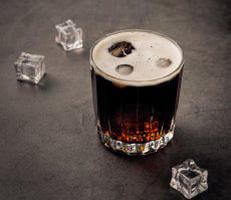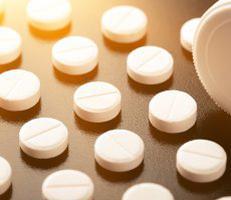An estimated 16 million people in the United States have alcohol dependence issues, according to the National Institute on Alcohol Abuse and Alcoholism.
If you have a problem with alcohol or are worried about your drinking, Brian Carty, MD, MSPH, of Carty Addiction and Internal Medicine Clinic in Winston-Salem, North Carolina can help.
Dr. Carty is a leading addiction specialist who provides effective medically managed alcohol reduction programs, so call the clinic today, or book an appointment online.
Our Patients Love Us!
Get In Touch With Us Today

How Carty Treats Alcohol Dependence in Winston-Salem
There are two fundamental treatment approaches for alcohol dependence: talk therapy and medication.
At Carty Addiction and Internal Medicine Clinic we utilize a combination of both these treatment approaches called medication-assisted treatment or MAT for short.
This is the most effective for the majority of people who have alcohol dependence issues.
What Is MAT?
MAT or medication-assisted treatment uses a multi-modal approach that includes medication, counseling, and behavior modification therapies to provide a whole-person solution to alcohol dependence.
The medication used in the MAT program is naltrexone, which helps to reduce your craving for alcohol. How it does this isn’t entirely clear, but it’s likely to be a consequence of the drug preventing the increase in dopamine that makes drinking alcohol addictive in some people. Dopamine is a neurotransmitter in your brain that creates the feeling of pleasure and is thought to be critical in the development of dependence and addiction.

By reducing your craving for alcohol using naltrexone and providing a program of therapy in a supportive environment, Carty Addiction and Internal Medicine Clinic’s MAT gives you the tools you need to recover from alcohol dependence. Find out more or schedule a consultation by calling the clinic today, or book an appointment using the online tool.
Get In Touch With Us Today
FAQs About Alcohol Dependence & Treatment
What is Alcohol Dependence?
Alcohol dependence, or alcohol use disorder (AUD), is a condition in which your intake of alcohol becomes excessive and compulsive. This means you feel you have to drink to function, drink large quantities of alcohol daily, and have symptoms of addiction that begin to take over your life.
Alcohol dependence is a widespread problem, with over 10% of the population being diagnosed with AUD. However, in many cases, people are unaware they are developing a dependence issue. If you aren’t sure whether your drinking is becoming a problem, consider your relationship with alcohol and how it’s affecting your life. Ask yourself whether you:
- Regularly have a hangover
- Find it difficult to go without a drink
- Drink more than you intend to
- Often feel an urge to drink
- Have had blackouts or memory loss
- Engage in risky behavior when drinking
- Are drinking increasing quantities
If your drinking is affecting your relationships or family life, or interfering with your ability to do your job, and you still can’t cut down or quit, it’s time to visit Carty Addiction and Internal Medicine Clinic for help.
How Long Is The Treatment For Alcohol Dependence?
In general, longer treatment periods tend to yield better results. The National Institute on Drug Abuse (NIDA) recommends extended treatment, as treatment periods shorter than 90 days in inpatient or outpatient settings have limited effectiveness.
Recovery from addiction is an ongoing process, similar to managing chronic illnesses. It may involve multiple treatment episodes, and relapse should be seen as a signal for possible treatment adjustment, not a moral failing.
Treatment options are diverse, not limited to inpatient centers. Short-term inpatient stays often complement other forms of treatment. When a lengthy inpatient stay isn’t feasible, any form of treatment is a positive step toward recovery.
What Is the Most Effective Treatment For Alcohol Dependence?
Combining talk therapy (counseling or psychotherapy) with the medication naltrexone is highly effective in treating alcohol dependence because it addresses the psychological and physical aspects of addiction. Talk therapy provides emotional support, helps individuals understand the root causes of their addiction, and teaches them coping skills. Naltrexone reduces alcohol cravings, making it easier to resist drinking. This combination is evidence-based and personalized, offering a comprehensive approach for long-term recovery.
What Does Naltrexone Do for Alcohol Use Disorder?
Naltrexone works by blocking the effects of opioids, including endorphins, in the brain. It is an opioid receptor antagonist, meaning it binds to and blocks the opioid receptors in the brain, preventing opioids from attaching to them. This action reduces the pleasurable sensations and cravings associated with opioids, including alcohol, which also affects opioid receptors in the brain. By blocking these receptors, naltrexone can help reduce alcohol cravings, decrease the rewarding effects of drinking, and support individuals in their efforts to maintain sobriety









